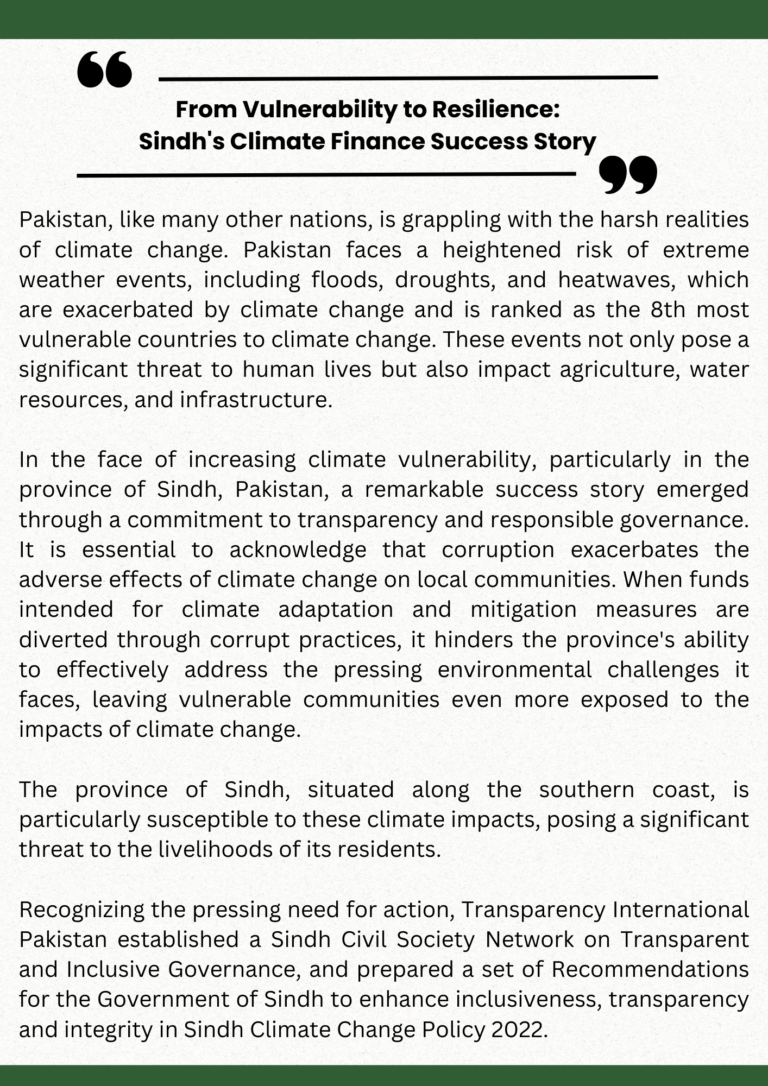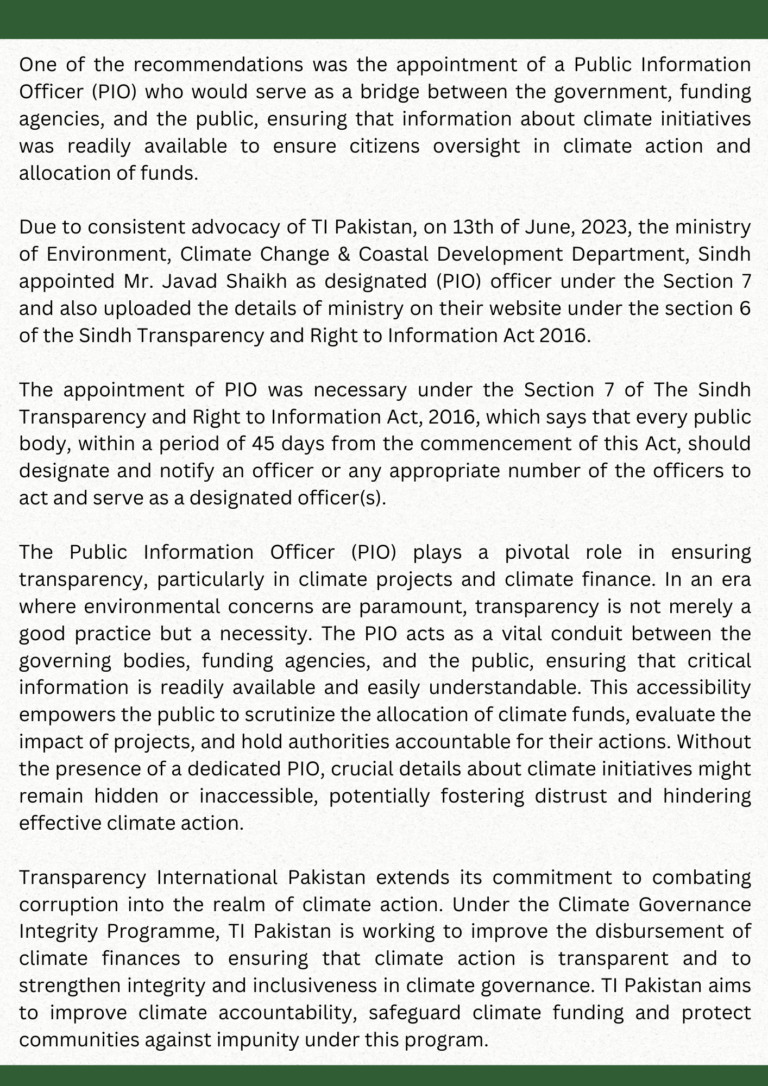- Home
- From Vulnerability to Resilience: Sindh’s Climate Finance Success Story
From Vulnerability to Resilience: Sindh’s Climate Finance Success Story
Pakistan, like many other nations, is grappling with the harsh realities of climate change. Pakistan faces a heightened risk of extreme weather events, including floods, droughts, and heatwaves, which are exacerbated by climate change and is ranked as the 8th most vulnerable countries to climate change. These events not only pose a significant threat to human lives but also impact agriculture, water resources, and infrastructure.
In the face of increasing climate vulnerability, particularly in the province of Sindh, Pakistan, a remarkable success story emerged through a commitment to transparency and responsible governance. It is essential to acknowledge that corruption exacerbates the adverse effects of climate change on local communities. When funds intended for climate adaptation and mitigation measures are diverted through corrupt practices, it hinders the province’s ability to effectively address the pressing environmental challenges it faces, leaving vulnerable communities even more exposed to the impacts of climate change.
The province of Sindh, situated along the southern coast, is particularly susceptible to these climate impacts, posing a significant threat to the livelihoods of its residents.
Recognizing the pressing need for action, Transparency International Pakistan established a Civil Society Organizations Network Sindh on Climate Governance, and prepared a set of Recommendations for the Government of Sindh to enhance inclusiveness, transparency and integrity in Sindh Climate Change Policy 2022.
One of the recommendations was the appointment of a Public Information Officer (PIO) who would serve as a bridge between the government, funding agencies, and the public, ensuring that information about climate initiatives was readily available to ensure citizens oversight in climate action and allocation of funds.
Due to consistent advocacy of TI Pakistan, on 13th of June, 2023, the ministry of Environment, Climate Change & Coastal Development Department, Sindh appointed Mr. Javad Shaikh as designated (PIO) officer under the Section 7 and also uploaded the details of ministry on their website under the section 6 of the Sindh Transparency and Right to Information Act 2016.
The appointment of PIO was necessary under the Section 7 of The Sindh Transparency and Right to Information Act, 2016, as quoted below:
Appointment of Designated Official: Every public body, within a period of 45 days from the commencement of this Act, designate and notify an officer or any appropriate number of the officers to act and serve as a designated officer(s).
The Public Information Officer (PIO) plays a pivotal role in ensuring transparency, particularly in climate projects and climate finance. In an era where environmental concerns are paramount, transparency is not merely a good practice but a necessity. The PIO acts as a vital conduit between the governing bodies, funding agencies, and the public, ensuring that critical information is readily available and easily understandable. This accessibility empowers the public to scrutinize the allocation of climate funds, evaluate the impact of projects, and hold authorities accountable for their actions. Without the presence of a dedicated PIO, crucial details about climate initiatives might remain hidden or inaccessible, potentially fostering distrust and hindering effective climate action.
Transparency International Pakistan extends its commitment to combating corruption into the realm of climate action. Under the Climate Governance Integrity Programme, TI Pakistan is working to improve the disbursement of climate finances to ensuring that climate action is transparent and to strengthen integrity and inclusiveness in climate governance. TI Pakistan aims to improve climate accountability, safeguard climate funding and protect communities against impunity under this program.



